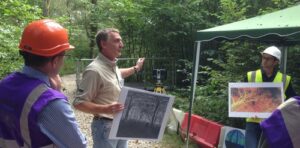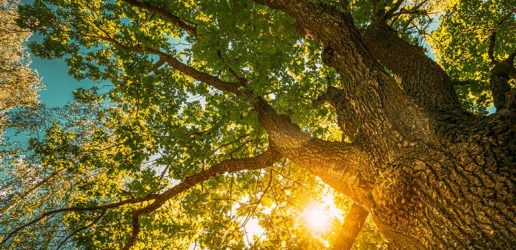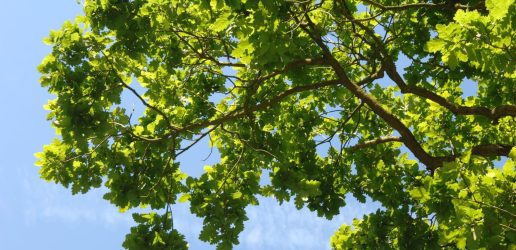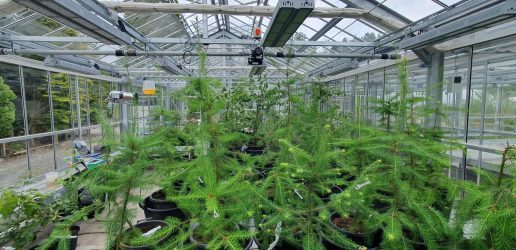In May, a major new campaign called Action Oak was launched at the Chelsea Flower Show. The campaign aims to build support for activities to protect the UK’s 121 million oak trees in UK woodlands.
Made up of charities, environmental organisations and landowners, including Forest Research, the Action Oak Partnership was formed in response to an increasing number of threats to the health of oak trees. These include pests and diseases such as the Oak Processionary Moth and Acute Oak Decline (mainly affecting southern regions of the UK), as well as a root-attacking species of honey fungus and powdery mildews (which are more widespread). Our changing climate creates further challenges.
The activities of the Partnership include:
- working with owners and managers of oak trees and woodlands to help to protect the trees from a range of threats;
- funding research to improve our understanding of the threats and to inform best management practices;
- using established professional and citizen science networks to record changes in the distribution, age and health of our oak trees to identify priority areas for action;
- encouraging organisations to join the Action Oak Partnership and people to support Action Oak.

Scientists from Forest Research have contributed to a baseline review of knowledge and hope to be involved, along with others, in future oak tree research. At a recent visit of the Action Oak steering group to the Birmingham Institute Of Forest Research (BIFOR) study site, Forest Research’s Eric Casella demonstrated his use of ground-based LiDAR to profile changes in biomass and canopy structure in an oak woodland subject to the enhanced levels of carbon dioxide likely to be experienced in future.
The initiative is supported by the Scottish, Welsh and Northern Ireland governments and by Defra. The partners include the Woodland Trust, Woodland Heritage, National Trust, The Duchy of Cornwall, Royal Botanic Gardens, the Forestry Commission and the Northern Ireland Forest Service.
For further information on Forest Research’s involvement please contact Chris Quine.
Recent News
View All news
Woodland managers are invited to take part in a new project to protect the nation’s oaks
Join a webinar and in-person workshop to learn about monitoring and protecting oak trees.

Webinar: Observing and understanding oak health across the UK
An online webinar launching a new, practical oak-health monitoring system for woodland managers and volunteers across the UK.

Webinar: Understanding drought risk for UK woodland creation and forestry
Hear about new research on how rising drought risk is reshaping UK forestry and the tools being developed to support climate‑smart woodland creation.

Woodland managers are invited to take part in a new project to protect the nation’s oaks
Join a webinar and in-person workshop to learn about monitoring and protecting oak trees.

Webinar: Observing and understanding oak health across the UK
An online webinar launching a new, practical oak-health monitoring system for woodland managers and volunteers across the UK.

Webinar: Understanding drought risk for UK woodland creation and forestry
Hear about new research on how rising drought risk is reshaping UK forestry and the tools being developed to support climate‑smart woodland creation.
